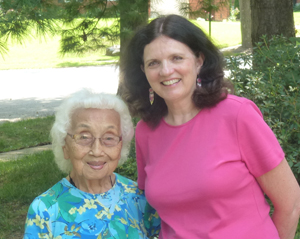A Japanese American woman’s life in US internment camps and post-war Japan
The Block Manager is the gripping memoir of Janet, an American-born child of Japanese immigrants. After the attack on Pearl Harbor, Janet’s life in California was uprooted when thousands of Japanese Americans on the West Coast—including Janet’s family—were forced into internment camps. Because of her brilliant command of English and Japanese, she was assigned the job of block manager. Janet was shuffled between three camps, got married, and had a child while the war raged on.
After enduring the psychological strain of forced incarceration, her very survival was threatened when she joined her husband in post-war Japan as famine gripped the country. Janet remained an American patriot through all her ordeals, holding on to the dream of reuniting with her family in the US. The Block Manager beautifully captures the uncertainty surrounding the internment camps and the gaman—patience with dignity—of the detainees.

Judy Mundle grew up listening to the best storyteller she’s ever known: her grandfather. She’s been carrying on his legacy as a storyteller ever since. Over the years, she’s introduced Janet’s story to many others; she’s brought her to schools, book clubs, and garden clubs to share her enthralling history. In order to honor her friend, Judy has taken her storytelling to pen and paper to memorialize Janet’s life in The Block Manager.
When she’s not telling stories, Judy is a certified public accountant. She graduated from Indiana University in 1977 with a BS in business administration and a concentration in accounting. She began her career as an auditor working in Chicago, followed by St. Louis and London. For the last thirty years, she has been a CFO for several small businesses and taught numerous accounting classes at local colleges. Judy and her husband, Craig, live in St. Louis and have three children and one granddaughter. She has volunteered extensively with local committees, her church, her children’s schools, the Scouts, and local charities.
“Judy Mundle was astounded when a Japanese American work colleague—rendered here as Janet Hayashi—confided that she had been a block manager at an American internment camp during World War II. In this poignant memoir, she reveals the shocking truth about life in the camps. . . .
“Engaging and informative, this book is an intimate glimpse of her Japanese culture, delivering understanding regarding inmates’ mindsets, responses, and attitudes. Hayashi’s emotionally charged narrative is disturbing in its harsh accounts of life in the shadow of the machine gun towers. . . . Despite adversity, men are seen planting gardens; women, doing their best to create privacy and a sense of home; children being born, learning, and playing; and people, including Janet and the man who became her husband, falling in love. Their stories are a legacy and a warning for a troubled world.”
—Kristine Morris, Foreword Reviews, July/August 2019
"Throughout, Koizumi depended on what she calls gaman, which her account translates as 'patience with dignity.' As the war progressed and Allied victory seemed assured, she saw 'the conflicted emotions in the eyes of so many. After these long years, the Japanese had become dependent on the government for their room and board and management of their lives. For us, freedom meant challenges for basic survival in a world where we feared we would still be outcasts.' . . . Years later, after living in postwar Japan, Koizumi would also settle in the St. Louis area. Her husband died in 1993, but her son earned several college degrees and succeeded, thanks in large part to his mother’s gaman—and guts."
—Harry Levins, St. Louis Post-Dispatch
“Mundle guides us through a post-war landscape as apocalyptic—and enduring—as any dystopian film. Only it’s a true story which nearly cost Janet, her husband, and their young son their lives. The Block Manager is a book that will provoke both tears and laughs. You will walk away with a different conception of World War II, and how we treat our own citizens in wartime, than you had before opening the book. It is brilliant. It sticks with you. Bravo to Janet for sharing her story, and Judy Mundle for her ingenuity in presenting it.”
—Robert Yehling, Crawl of Fame, Just Add Water, and When We Were the Boys